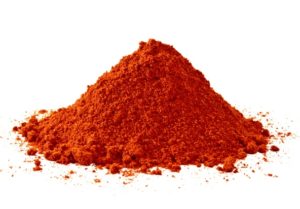
Dealing with allergy symptoms throughout the year can have a considerable impact on your life, making it hard to function during day-to-day activities or fun nights out.
Allergy relief medications can help, but some have side effects such as drowsiness that may make it even harder to function. An alternative approach to allergies is to try natural therapies, including herbs, nasal rinses, and certain foods.
Natural remedies that help keep your allergies in check can empower you to take charge of your health. However, some natural therapies, such as herbs, come with their own list of side effects, and they can be toxic if you take too much. People can be deceived into believing that if it’s natural, it’s safe. The goal is to take small amounts of herbs to get the effects you’re looking for.
Consult with a naturopath or a homeopathic physician if you plan to try herbs for allergy relief. It’s also vital to tell all of your doctors about the herbs you’re taking, because natural remedies could interfere with any drugs you’ve been prescribed, both for allergies and other conditions.
Herbs and Other Allergy Relievers
Herbs are only one type of natural therapy for allergy relief. Here are the ones most likely to help, along with other approaches to consider.
- Nasal irrigation. One effective way to keep your sinuses clear of mucus during allergy season is to flush the nasal cavity and keep your nose moist with a saline solution that you can buy at your drugstore. Nasal irrigation helps promote good nose health. Some people are comfortable using a small syringe, while others prefer a neti pot for nasal irrigation. During allergy season, it’s probably a good idea to use irrigation every day or even more than once a day, but even just two or three times a week will help.
- Butterbur. Extracts of butterbur are going head-to-head with antihistamine products on the market. In a study of 330 people who were given either butterbur extract, the antihistamine fexofenadine (Allegra), or a placebo, extracts of the herb worked as well as Allegra at relieving allergy symptoms. Another study found butterbur extract to have similar effects to the antihistamine cetirizine (Zyrtec). The herb helps get rid of mucus and has been used to treat asthma and bronchitis. There’s some concern that if butterbur is from the same family of ragweed it could trigger allergies, but that’s only in theory. Butterbur does have side effects, including the possibility of drowsiness, headache, and an upset stomach. It’s recommended to take butterbur in extract form.
- Stinging nettle. The jury is still out on whether stinging nettle provides allergy relief. A small study found that it might help relieve symptoms, but more research needs to be done. If you try stinging nettle, be sure to consult your doctor before taking it. As with butterbur, take nettle leaf in extract form. You shouldn’t take stinging nettle if you’re pregnant or give it to young children. And if you take a blood pressure medication, a blood thinner, or a diuretic, or you have diabetes, be sure to talk to your doctor before you take stinging nettle.
- Quercetin. The flavonoid quercetin, which is the phytochemical that gives fruits and vegetables their color, has been found to block the release of histamine in test tube studies. Research hasn’t found definitively that quercetin can help with allergy symptoms in people. However, getting plenty of quercetin in your diet from apples, berries, grapes, squash, greens, and sweet potatoes certainly doesn’t hurt.
- Spicy foods. Turning up the heat of your food with horseradish and chili peppers can act as a decongestant and clear away the mucus that’s been building from allergies. If you like spicy food, this may be the most enjoyable approach to allergy relief.
As you try different therapies to ease allergy symptoms, keep in mind that there’s no quick and easy fix. So while you shouldn’t turn to natural therapies with the expectation that they will cure all of your ills, you should work with your doctor to determine what therapies will work best for you.







